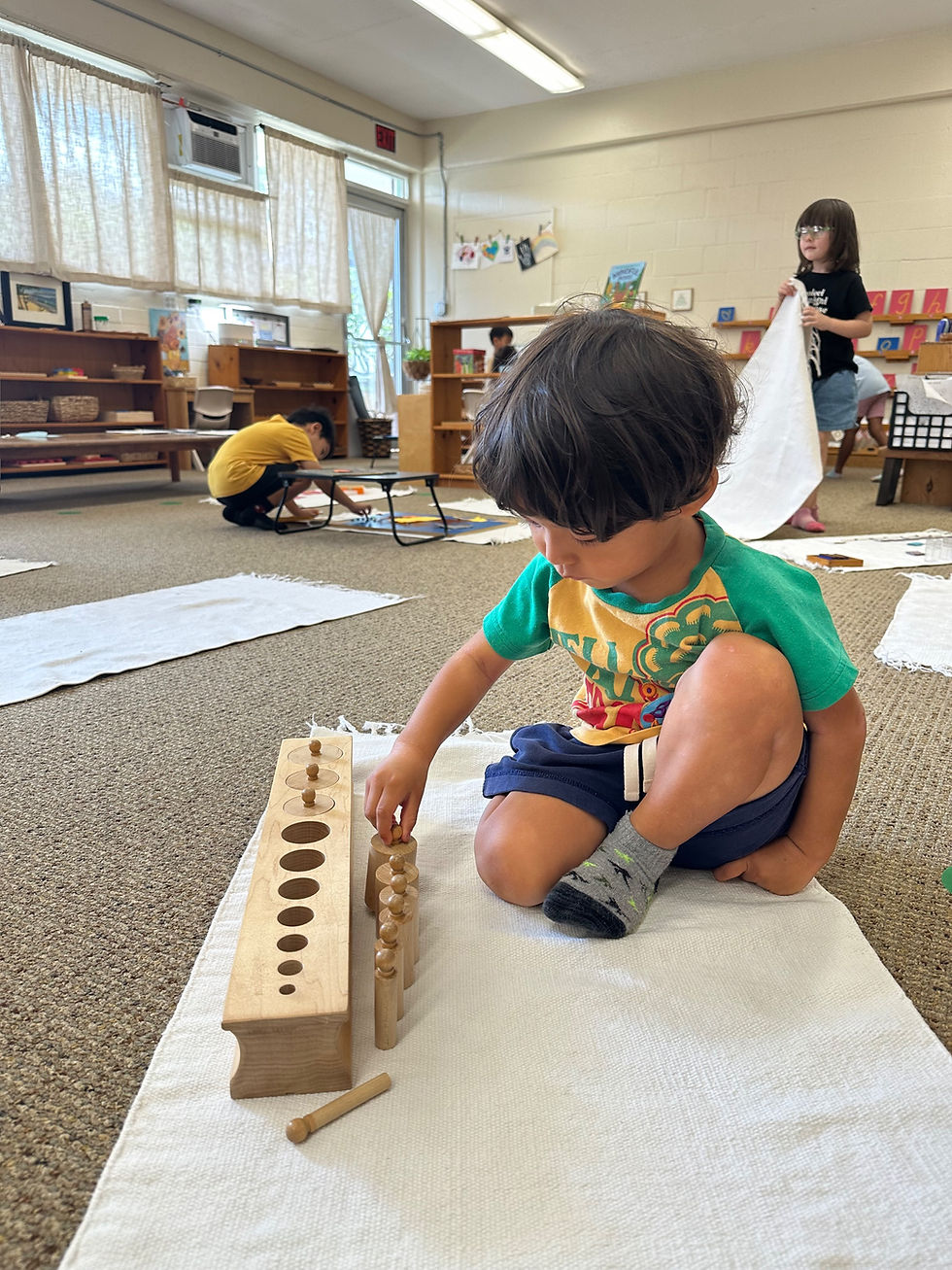Fine Motor Development in the Montessori Preschool Classroom
- Montessori Community School

- Jun 8, 2023
- 3 min read

The Montessori philosophy focuses on developing every aspect of the whole child, including a child’s physical development. From the enhancement of hand-eye coordination and sensorial abilities to the development of gross and fine motor skills, the Montessori Community School Preschool & Kindergarten program is designed to help children develop the skills they will need to gain a sense of order, develop independence and concentration, and refine their coordination.
Fine motor skills, or dexterity, is something that we often think develops naturally in a child as they grow older. However, there is actually a close relationship between fine motor development and cognitive development. Fine motor development begins almost right away in babies, as they use their reflexes to grasp your finger or hold onto a rattle.
Engaging and encouraging young children in fine motor activities is important for laying a strong foundation for their future success, and the Montessori environment is one which purposefully engages these skills from a young age.
Fine Motor Skills and Hand-Eye Coordination
In the Montessori preschool classroom, children participate in Practical Life activities, which are known to improve a child’s fine motor skills (coordinated small muscle movements in the hands, wrists, and fingers) and hand-eye coordination (the use of the eyes to guide movements). Actions, like grasping, reaching and releasing an object, and turning the wrist, are the types of fine motor movements that children learn in a Montessori preschool in order to prepare them for the daily tasks of life. Activities such as using pencils, cutting with scissors, using child-sized cleaning tools, and practicing with such Sensorial activities as the Pink Tower and Knobbed-and-Knobless Cylinders are popular activities for young children, allowing them to engage in hands-on activities. Even through the elementary level, fine motor skills continue to be refined with Practical Life activities appropriate for their developmental level, such as sewing and weaving, or carefully placing beads into test tubes to learn division in a concrete manner.
Another popular Montessori activity to develop fine motor skills in young children is the use of tongs to pick up small objects, like shells or buttons, to transfer them between containers. This activity introduces the pincer grip to children, where the thumb, forefinger and middle finger act as a tripod, an essential skill for later handwriting. Homemade play-dough is a great activity for strengthening hand grip, another important factor in the development of a proficient pencil grip.
Here’s a favorite MCS recipe for homemade play-dough!
Daily practice of fine motor skills takes place in all of these seemingly unrelated activities. Development of these skills helps children perform routine tasks. Furthermore, it can be a predictor of academic success. Research shows that working on fine motor skills early in life helps the brain make connections that support cognitive performance.
How do we use these skills in everyday life?
Here are a few activities that require fine motor coordination:
Getting dressed and undressed
Feeding self
Writing and drawing
Using scissors
Grooming and hygiene maintenance
Turning pages in a book
So what difference does the Montessori approach to fine motor development make for children? Researcher Prendergast (1969) found that children who attended a Montessori preschool outperformed children from a similar background attending conventional preschools, specifically in the areas of hand-eye coordination and visual perception.
Other researchers have had similar findings. Indeed, it is now estimated that a 5-year-old who has used Montessori Practical Life activities for over a year will demonstrate greater accuracy, speed and more hand dominance than a group of students in a conventional preschool program.
Fine motor skills do not develop quickly or automatically. They require understanding, time, and patience. The classroom environments at Montessori Community School balance physical, cognitive and social elements of activity which assist this process. Ultimately, we aim to give children the best start to life and, by honing fine motor skills from a young age, can contribute to their future successes.

Sources:






